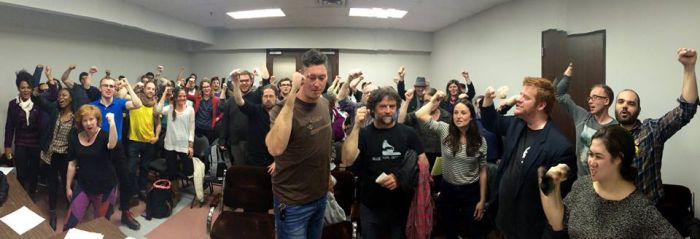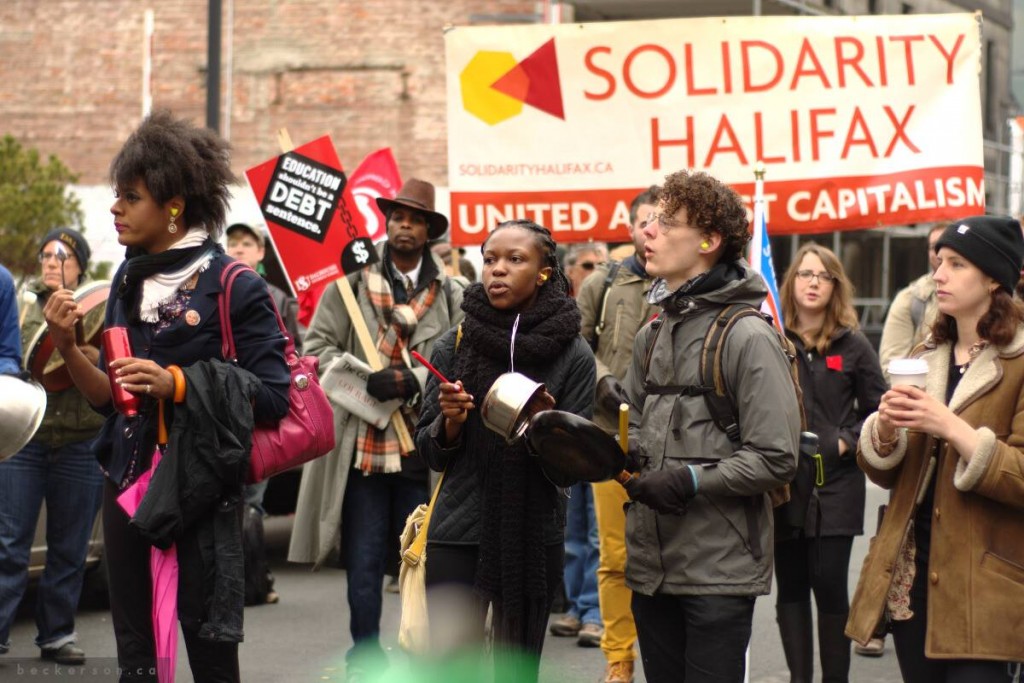The university is one of the few remaining spaces for critical resistance against capitalism and neo-liberal dogma. Bill 100 represents a frontal assault on what little space we have left by stripping away academic freedoms and collective bargaining rights. Bill 100 aims at fundamentally changing our way of thinking about our public institutions by paving the way for the government to restructure universities as research and training facilities for corporations and government.
- In the midst of one of the most severe austerity budgets in the province’s history, the government of Nova Scotia is introducing Bill 100—the “Universities Accountability and Sustainability Act”. According to Kelly Regan, the Minister of Labour and Advanced Education, the act will allow the government to better assist institutions facing financial difficulty.
- What does all of this actually mean? When a university faces a period of financial difficulty the payment of further public funds will be contingent on the implementation of a ‘revitalization plan’. The plan will be implemented by a panel, which is appointed by the minister.
- Once this plan is implemented, the university can no longer be seen an independent institution: its fate rests in the hands of an externally appointed panel.
- The external panel is not accountable to the university community—its students, faculty and workers—but to the Minister. Further, there are no specific details about how that panel is composed. Is it likely to be members of the university community, or, representatives of corporate interests and government bureaucrats?
- If this isn’t enough, the plan suspends fundamental worker’s rights, including the right to strike and the grievance process. Any collective agreements that contravene the revitalization plan are considered null and void. In other words, Bill 100 gives the university the right to suspend fundamental constitutional rights in order to get its finances in order. Students, faculty and workers will be made to suffer for the mismanagement of professional university administrators and the bungling of our government.
- It is not only a threat to academic freedom and institutional integrity, but to the fundamental rights of workers within institutions of higher education. Academic freedom is protected through collective agreements. Bill 100 puts the power to suspend those agreements, and in turn the principle of academic freedom, in the hands of university administrators. Further, the Bill makes no mention of the salaries of the highly paid professional administrators who run these institutions, but threatens low-wage contract staff and support workers for whom the grievance process and right to strike are essential.
- Further government grants will be contingent on the university entering into and complying with ‘outcome agreements’. These agreements allow the government to dictate the purpose and goal of any taxpayer-funded research. Along with the restrictions on worker’s rights and the violation of academic freedom, we find the government mandating the scope and value of university research. With this the government is accelerating the restructuring of the university around a neoliberal model in which the value of university research is considered on the basis of the public good.
- Reflected in this Bill is the Liberal government’s belief that the burden of economic austerity should rest on the shoulders of those who are least able to carry the weight. The calculated targeting of the working class, students, racialized groups and the disabled is quickly becoming the new status quo in Nova Scotia.
- Academic freedom is being attacked from two directions: first, it makes the university subordinate to the power of an externally appointed panel; and, second, it suspends fundamental rights that permit internal opposition to the university administration.
- Any so-called ‘revitalization plan’ presents the government the opportunity to fundamentally restructure the university away from a place of critical learning to a training ground for corporations that are in the process of stripping this province dry. The removal of fundamental worker’s rights makes any form of internal opposition to this restructuring process virtually impossible.
- We must reject the government’s attempts to undermine both the principles of academic freedom that underlie our province’s universities and the fundamental rights of all workers. We must not allow the institutions that enrich our public life to be reduced to corporate training grounds or playgrounds for a small elite.
![Nova Scotia municipalities have been ordered to develop climate change action plans, yet the 2015 budget calls for cuts to renewable electricity and renewable energy. [Photo: lietz.photography via flickr]](http://solidarityhalifax.ca/wp-content/uploads/2015/04/HMC-enviro-300x300.jpg)



